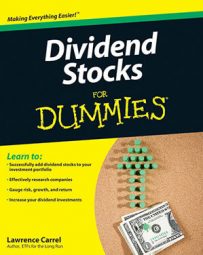Real estate investment trusts, or REITs, provide a way for investors to receive capital appreciation and income from real estate without having to actually purchase and maintain property. It’s like being an owner/landlord without all the hassles and responsibilities that typically accompany those roles. True to their name, REITs are trusts, not corporations. Like any trust, a REIT has beneficiaries — the shareholders.
To be considered a REIT, these trusts must follow the requirements of the Real Estate Investment Trust Act of 1960. This law states that if the trusts follow certain criteria, they’re exempt from paying corporate income tax and capital gains taxes. The main criterion? The trust needs to pay out at least 90 percent of its annual profit to shareholders. This huge payout typically results in high yields.
REITs trade like stocks but in some ways are more like mutual funds. Like stocks, shares of a REIT
Trade publicly on a stock exchange and are bought and sold through a stockbroker.
Are sold in an initial public offering (IPO).
Are very liquid. You can buy and sell them anytime the stock market is open for business.
Have the same trading options as stocks, including short sales and limit orders.
Pay dividends to investors.
Are subject to SEC regulations and carry the same SEC reporting requirements as stocks.
Like a mutual fund, a REIT is
An investment company that manages investment assets instead of selling goods and services. A REIT buys, rents, leases, manages, develops, and sells buildings — commercial, industrial, or residential developments. The REIT is typically a landlord, generating revenue from rents, property leases, and fees. REITs may also earn interest from mortgages they own. In addition, the underlying assets can increase in property value.
A pool of money accumulated from many investors looking for a diversified real estate investment portfolio.
A portfolio run by a professional manager.
A portfolio that holds assets that it can sell off if it needs to be liquidated.
A tax entity that helps investors avoid double-taxation. Trusts, like mutual funds, don’t pay taxes. The tax expense is passed onto, and becomes a liability of, the shareholder.

